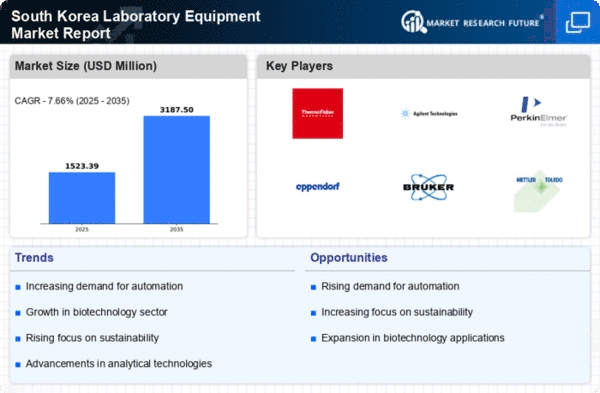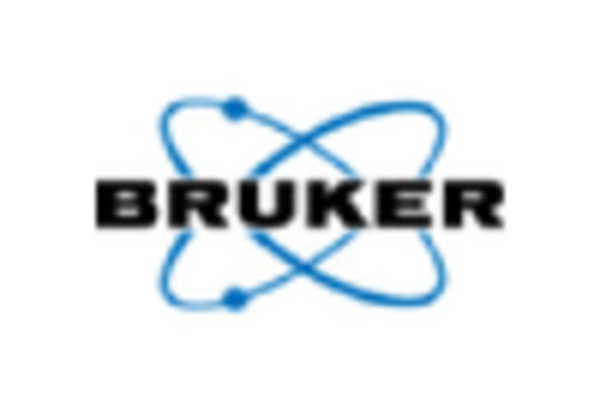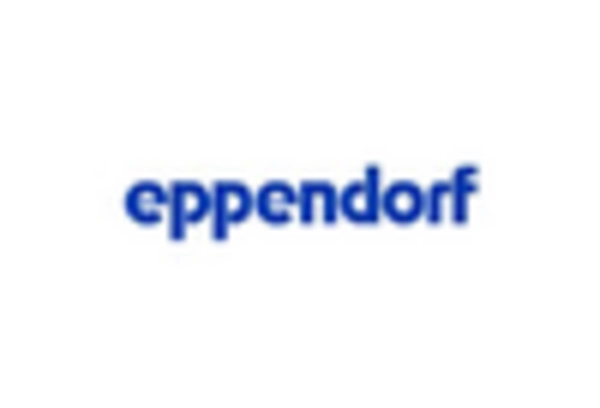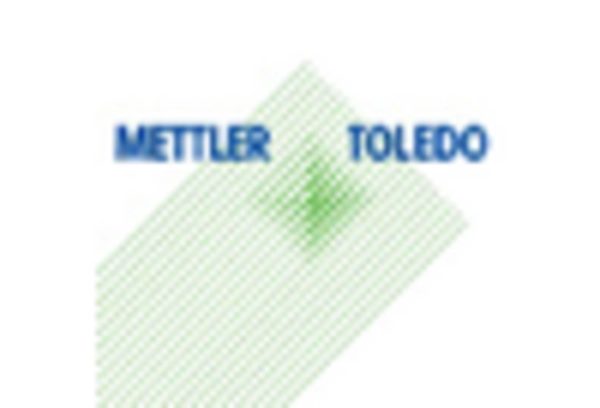Growing Educational Initiatives
The laboratory equipment market in South Korea is benefiting from a growing emphasis on educational initiatives in science and technology. Educational institutions are increasingly investing in modern laboratory facilities to enhance the learning experience for students. This trend is particularly evident in universities and vocational schools, where practical training is essential. The South Korean government has introduced programs aimed at improving STEM education, which includes funding for laboratory upgrades. As a result, the demand for laboratory equipment is likely to rise, with educational institutions seeking to provide students with access to cutting-edge technology. This focus on education is expected to contribute to a steady growth in the laboratory equipment market, with projections indicating an increase in sales by approximately 4% over the next few years.
Increased Regulatory Compliance
In South Korea, the laboratory equipment market is influenced by stringent regulatory compliance requirements across various industries, including pharmaceuticals and food safety. Regulatory bodies are enforcing higher standards for laboratory practices, necessitating the use of advanced and reliable laboratory equipment. Companies are compelled to invest in state-of-the-art equipment to meet these compliance standards, which is likely to drive market growth. The demand for equipment that ensures accuracy and reliability in testing and analysis is paramount. As a result, the laboratory equipment market is expected to see a steady increase in sales, with estimates suggesting a growth rate of around 5% annually as organizations prioritize compliance and quality assurance.
Expansion of Biotechnology Sector
The biotechnology sector in South Korea is expanding rapidly, which is having a profound impact on the laboratory equipment market. With the government promoting biotechnology as a key industry, there is a notable increase in the number of biotech firms and research initiatives. This growth is expected to drive demand for specialized laboratory equipment, such as bioreactors and analytical instruments. According to recent data, the biotechnology market in South Korea is projected to reach $10 billion by 2026, indicating a robust growth trajectory. As biotech companies require advanced tools for research and development, the laboratory equipment market is likely to benefit significantly from this trend. The interplay between biotechnology advancements and laboratory equipment needs suggests a dynamic environment for market participants.
Emergence of Startups in Scientific Research
The laboratory equipment market in South Korea is witnessing a notable emergence of startups focused on scientific research and innovation. These startups are often at the forefront of developing new technologies and methodologies, which in turn drives demand for specialized laboratory equipment. The entrepreneurial ecosystem in South Korea is thriving, supported by government initiatives that encourage innovation and technology transfer. As these startups seek to establish themselves in competitive markets, they require access to advanced laboratory equipment to conduct their research effectively. This trend is likely to stimulate growth in the laboratory equipment market, with estimates suggesting an increase in market size by around 7% as new players enter the field and invest in high-quality equipment.
Rising Investment in Research and Development
The laboratory equipment market in South Korea is experiencing a surge in investment directed towards research and development (R&D). This trend is primarily driven by both public and private sectors aiming to enhance scientific capabilities. The South Korean government has allocated substantial funding, estimated to exceed $1 billion annually, to support innovation in various scientific fields.. This influx of capital is likely to stimulate demand for advanced laboratory equipment, as institutions seek to upgrade their facilities and technologies. Furthermore, the increasing number of research institutions and universities in South Korea contributes to the growing need for sophisticated laboratory equipment. As a result, the laboratory equipment market is poised for significant growth, with projections indicating a compound annual growth rate (CAGR) of approximately 6% over the next five years.
















